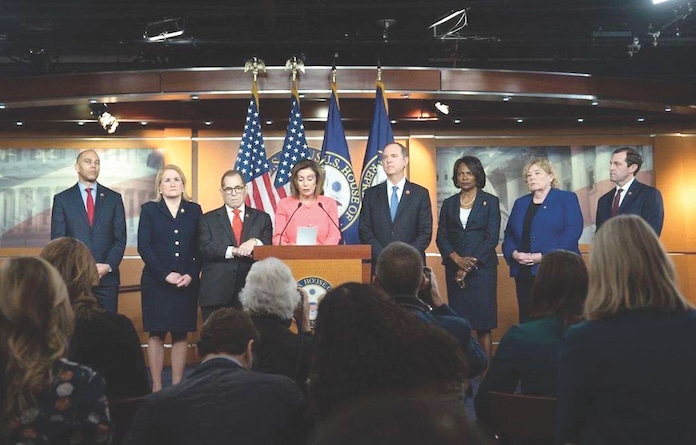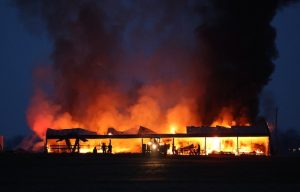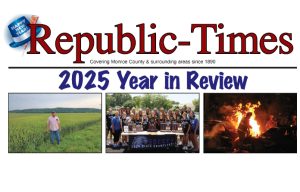Teaching impeachment

For only the third time in America’s history, a president has been impeached.
The U.S. House of Representatives voted in December to impeach President Donald Trump, and Trump’s trial began in the U.S. Senate this week.
This historic event has divided the nation, and it has provided a rare learning opportunity for Monroe County students.
Teachers at each high school in the county have not shied away from impeachment, but used it as an opportunity to explain impeachment in terms of its process and historical precedent.
“I use the current impeachment proceedings as a current event topic and tie it in with the study of the Constitution,” Waterloo High School social studies teacher Eric Major said. “We discuss the powers given to each branch and the principle of checks and balances and separation of powers…. We have really focused on the process of impeachment and compared the Clinton and Johnson impeachments to the Trump case.”
Trump faces two articles of impeachment, which passed the House strictly along party lines because no Republicans voted for them.
House Democrats argue Trump abused his power by attempting to get Ukraine to aid his reelection bid and obstructed Congress’s investigation into that matter, which centered on a phone call with Ukraine’s president and a delayed almost $400 million in military aid.
“President Trump has betrayed the American people and the ideals on which the nation was founded,” House prosecutors wrote in a legal filing Saturday. “Unless he is removed from office, he will continue to endanger our national security, jeopardize the integrity of our elections and undermine our core constitutional principals.”
Generally, Trump’s legal team argues the impeachment articles do not state impeachable offenses or violations of the law and the impeachment inquiry violated precedent and Trump’s right to due process.
“The articles of impeachment now before the Senate are an affront to the Constitution and to our democratic institutions,” Trump’s legal team wrote in a Monday filing. “The articles themselves – and the rigged process that brought them here – are a brazenly political act by House Democrats that must be rejected.”
Throughout the impeachment process, which has made instruction challenging because of how rapidly it is moving, local teachers have emphasized the Constitutional rules of impeachment.
Teachers have also focused on media literacy, which are the practices that allow people to critically evaluate any media.
“Go to many different news affiliates to understand what is going on,” Columbia High School government teacher Mark Sandstrom advised. “Mass media (TV, internet, social media, written materials), leans one way and your news/reactions could be one-sided politically. I recommend the website allsides.com because each article is labeled from a political party standpoint so you know what the bias is going in.”
Another tip is to look at primary sources, like the transcript of Trump’s call with the Ukrainian president.
The teachers all said the process has led to myriad discussions on the topic, which sometimes give educators opportunities to clarify misunderstanding.
“The students, especially the seniors, have definitely let their thoughts be known on what they think about the proceedings,” Valmeyer High School social studies chairman Robert Hawley said. “The majority of the discussion has centered on whether the House should have impeached President Trump given the fact that the (Republican-controlled) Senate will most likely not remove him from office. The students also debated which political party will gain an advantage in the upcoming presidential election this fall.”
Gibault Catholic High School history department chair Kara Hoke said discussions at her school have also led to introspection from students.
“It’s making them question where they stand because they’re learning about parties that they thought they identified with and maybe now they aren’t identifying with,” she said.
Gibault social studies teacher Rebecca Henke said her classes have also had moral discussions surrounding impeachment.
“Disagreeing with someone is never an excuse to degrade someone,” Henke stressed. “It’s OK to disagree about political issues. It’s not OK to allow this to turn you into an infantile creature that’s screaming and being irrational.”
Hawley, Hoke and Sandstrom said studying and discussing the impeachment proceedings has led to talks about partisanship, which has frustrated some students.
“One of my biggest worries is that the current state of our federal government is creating a generation of cynical young citizens who believe that government officials care more about their political party than they do about the country,” Hawley said.
The teachers all said they hoped their work would make students informed about this topic.
Multiple educators said that seems to be the case because students have told them they are paying more attention to politics now.
“I’m not sure their opinions have changed one way or the other,” WHS social studies teacher James Rader noted. “I do hope they have a greater awareness of the gravity of the situation.”
“This is a generation-defining moment,” Henke agreed, noting most high school students are too young to remember the terrorist attacks of Sept. 11, 2001. “They’re all going to remember, ‘I was in high school when Trump was impeached.’”






